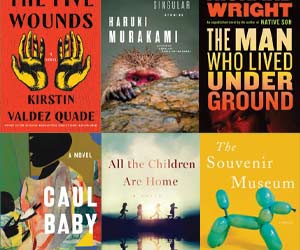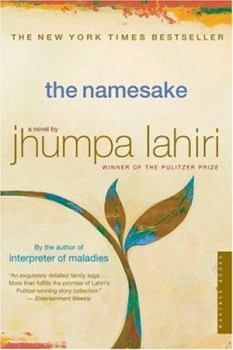The Namesake
Select Format
Select Condition 
Book Overview
"Dazzling...An intimate, closely observed family portrait."--The New York Times
"Hugely appealing."--People Magazine
"An exquisitely detailed family saga."--Entertainment Weekly
Meet the Ganguli family, new arrivals from Calcutta, trying their best to become Americans even as they pine for home. The name they bestow on their firstborn, Gogol, betrays all the conflicts of honoring tradition in a...
Customer Reviews
Caught between two cultures
Best story I've read in a long time
young Bengali discovers melting pot may be a bit too hot
We All Came Out Of Gogol's Overcoat
An excellent debut novel
The Namesake Mentions in Our Blog

Thriftbooks is ringing in a milestone anniversary this year—twenty! In celebration, here are twenty terrific books, spanning a variety of genres, that came out the year we were born.

Our TBR piles may be weighing down our bedside tables, but that doesn’t stop us from perusing (and purchasing!) new books! Here are fifteen April releases that we can’t wait to pick up, along with suggestions for books you can read right away.

Today's America is hard to define. A land of promise. A melting pot. A country of immigrants. A study in contrasts. We are young. We are optimistic. We are angry. We are evolving. Here are eight contemporary authors who represent and celebrate the glorious diversity of the American experience.






